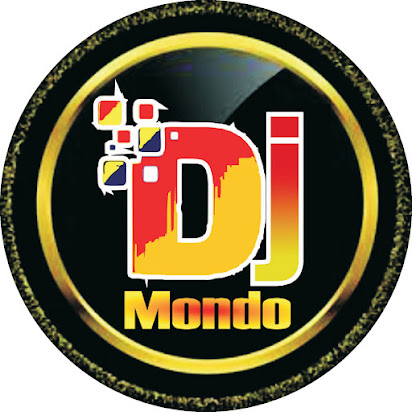How Music Shapes Society and Culture
Music has been a central element of human civilization for centuries, influencing societies and cultures around the globe. From ancient tribal rhythms to modern pop anthems, music transcends boundaries, connecting people and reflecting their collective experiences. In this post, we explore how music shapes society and culture, highlighting its impact on communication, identity, traditions, and social change.
1. Music as a Universal Language
One of music’s most profound qualities is its ability to communicate emotions and ideas without the need for words. Whether through melody, rhythm, or harmony, music conveys messages that resonate universally:
Breaking Language Barriers: Music enables communication across diverse linguistic groups, fostering understanding and unity.
Emotional Expression: It captures the complexity of human emotions, providing a voice to joy, sorrow, love, and struggle.
Cultural Exchange: Through global music sharing, people experience and appreciate cultures different from their own.
For example, Afrobeat’s infectious rhythms have introduced African culture to audiences worldwide, showcasing the continent’s rich musical heritage.
2. Shaping Identity and Community
Music plays a crucial role in shaping personal and group identities:
Cultural Identity: Traditional music reflects the values, beliefs, and histories of a society. Folk songs, for instance, preserve oral histories and ancestral wisdom.
Subcultures: Genres like punk, hip-hop, or electronic music often define youth subcultures, giving them a sense of belonging and purpose.
Individual Identity: For many, music is deeply personal, shaping their worldview and self-expression.
Artists like Bob Marley used reggae to highlight the struggles and triumphs of Jamaican identity, inspiring movements far beyond the island’s shores.
3. Preserving and Evolving Traditions
Music is a living repository of tradition, yet it is also a dynamic force that evolves with society:
Cultural Preservation: Traditional songs and instruments keep ancestral knowledge alive, passing it from one generation to the next.
Fusion and Innovation: Musicians often blend traditional elements with modern styles, creating hybrid genres that reflect contemporary life.
Festivals and Rituals: Events like carnivals or religious ceremonies use music to maintain and celebrate cultural heritage.
In India, Bollywood music combines classical Indian sounds with global influences, demonstrating how traditions adapt and thrive in modern contexts.
4. Driving Social Change
Music has long been a catalyst for social movements and change:
Protest Songs: Tracks like John Lennon’s “Imagine” or Billie Holiday’s “Strange Fruit” highlight social injustices and inspire action.
Awareness Campaigns: Musicians often lend their voices to causes, raising awareness and funds for issues like climate change or human rights.
Unity and Resistance: In times of oppression, music serves as a tool for solidarity and resistance.
The civil rights movement in the United States, for instance, used gospel and soul music to energize and unite activists.
5. Economic and Cultural Impact
Music contributes significantly to both local and global economies, while also shaping cultural landscapes:
Tourism: Cities like Nashville or Vienna attract millions of visitors drawn by their musical legacies.
Cultural Diplomacy: Countries use music to promote their image and foster international goodwill.
Creative Economies: Music supports industries like film, advertising, and gaming, creating jobs and driving innovation.
Streaming platforms have further expanded music’s reach, enabling artists from all corners of the world to influence society on an unprecedented scale.
6. Music and Technology
Technological advancements continuously redefine how music shapes society:
Digital Platforms: Streaming services like Spotify or YouTube democratize access to music, making it easier for emerging artists to reach global audiences.
Social Media: TikTok trends often dictate mainstream music consumption, influencing culture and creating viral moments.
AI and Production: Artificial intelligence is pushing boundaries in music creation, offering new ways to experiment with sound.
These innovations not only change how we experience music but also how it reflects and influences cultural trends.
7. Education and Emotional Well-Being
Music is a powerful tool for education and emotional health:
Educational Tool: Songs are used to teach language, history, and even math, making learning engaging and memorable.
Therapeutic Benefits: Music therapy helps individuals cope with stress, trauma, and mental health challenges.
Emotional Connection: Listening to or playing music fosters emotional resilience and empathy.
From lullabies that soothe infants to anthems that inspire nations, music’s impact on the human psyche is profound.
8. Music in Popular Culture
Popular culture is deeply intertwined with music, influencing fashion, language, and lifestyle:
Fashion Trends: Musicians often inspire sartorial choices, from Elvis Presley’s iconic suits to the street-wear styles popularized by hip-hop artists.
Language Evolution: Song lyrics introduce slang and idioms that become part of everyday speech.
Lifestyle Movements: Genres like EDM (electronic dance music) create subcultures centered on shared values and experiences.
Icons like Beyoncé or BTS exemplify how music can become a driving force in shaping global pop culture.
9. Globalization and Cultural Exchange
Globalization has amplified music’s role in cultural exchange:
Cross-Cultural Collaborations: Artists from different countries collaborate, blending styles and creating new sounds.
World Music’s Rise: Genres like Afrobeat, reggaeton, and K-pop reach diverse audiences, breaking cultural barriers.
Access to Diversity: Streaming platforms and social media expose listeners to music from every corner of the globe.
This interconnection enriches cultural understanding and fosters global unity.
Final Thoughts
Music’s influence on society and culture is undeniable. It transcends language, shapes identities, preserves traditions, and drives social change. Whether through a protest anthem or a catchy pop hit, music has the power to inspire, connect, and transform.
As listeners and creators, we participate in this dynamic exchange, contributing to the ever-evolving cultural landscape. The next time you press play, consider the profound impact that music has on our lives and the world around us.
How has music shaped your perspective? Share your thoughts in the comments below!
Stay tuned for more behind-the-scenes stories, music tips, and exclusive updates. Follow me on Audiomack and social media to stay connected with my journey as DjMondo.


